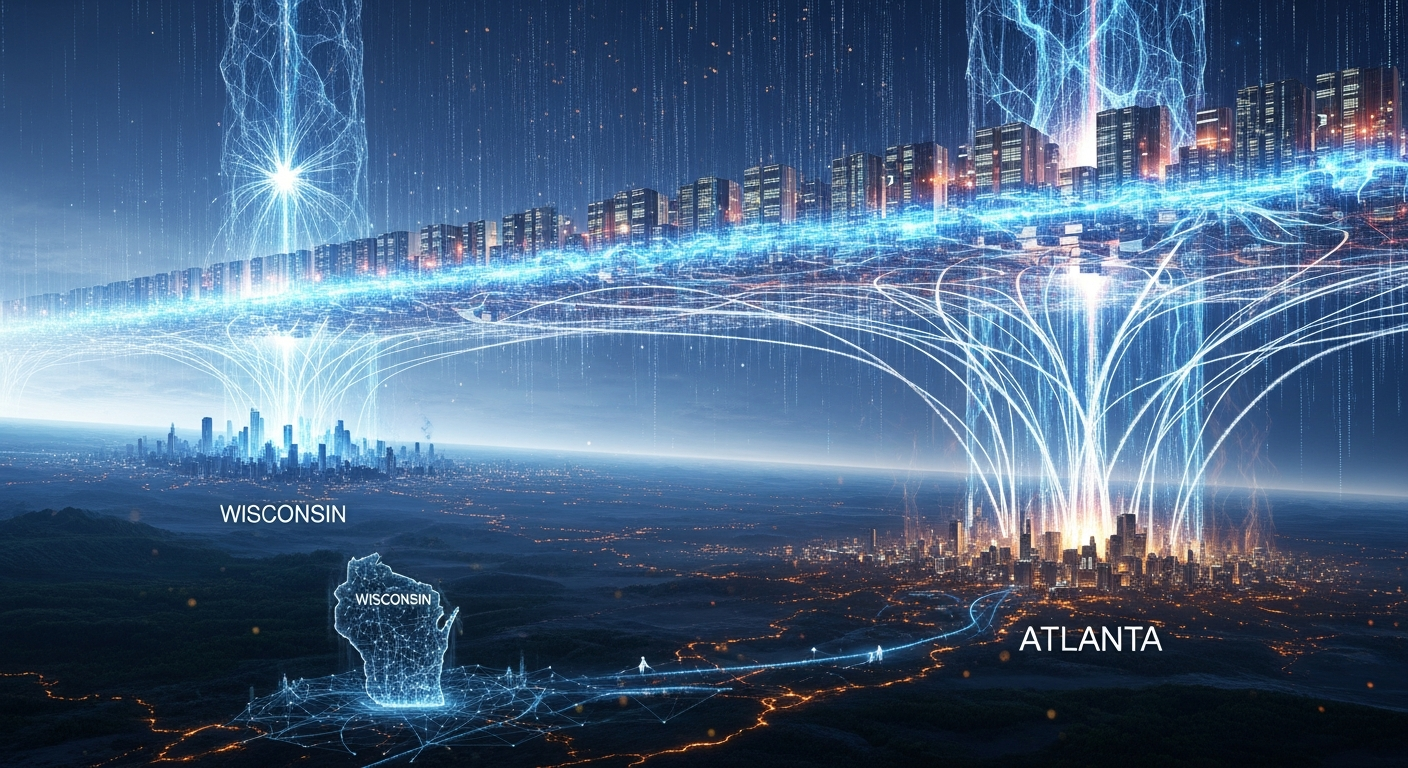
The recent news of Microsoft unveiling its 'planet-scale AI superfactory,' linking Wisconsin and Atlanta datacenters to handle immense AI workloads, is a momentous development "AI revolution: Microsoft launches world’s first 'AI superfactory'; read CEO Satya Nadella’s message" from timesofindia.indiatimes.com. While CEO Satya Nadella's message emphasizes this innovation's role in supporting partners like OpenAI and advancing Microsoft's own AI, for me, this isn't just about technological scale; it's a profound validation of long-held observations and predictions. It reinforces the trajectory of artificial intelligence that I have been discussing for years.
I recall my conversations and writings from as far back as 2016 and 2017, when the very notion of AI’s pervasive influence was still nascent for many. In my blog, "Revenge of AI" Revenge of AI, I highlighted the partnership between tech giants—Facebook, Amazon, Google, IBM, and Microsoft—on a unified AI platform, speculating on AI's potential to replace human roles. I questioned whether AI would remain devoid of human frailties. This 'superfactory' is the physical manifestation of that growing collaboration and computational ambition. The infrastructure Microsoft is building—pooling hundreds of thousands of GPUs—is precisely the kind of massive computing power I envisioned would be necessary for truly advanced AI. It makes me reflect on my discussion about "Modi's Manavs" Modi's Manavs: Grok Designs Portal, where I envisioned AIs collaborating, debating, and refining their responses to reach a collective intelligence—a vision that demands planet-scale infrastructure.
The Geopolitical & Ethical Dimensions
The scale of this investment by Microsoft, and its strategic support for entities like OpenAI, cannot be viewed in isolation. It's a key move in the intensifying global race for AI supremacy. In my writings, particularly when discussing External Affairs Minister S. Jaishankar's candid remarks on tariffs and sanctions Jaishankar says 'Countries Use Tariffs, Sanctions; It is A Reality' and the broader context of geopolitical competition in trade A TradeWar Epidemic ?, I often highlighted how nations would increasingly weaponize economic tools and technological advantages. This AI superfactory is very much a part of that larger geopolitical chess game, securing a leading position for the US and its tech giants.
Moreover, the concentration of such immense computational power compels us to revisit the ethical questions surrounding AI. My blogs, such as "Artificial Intelligence: Destroyer of Privacy?" Artificial Intelligence : Destroyer of Privacy ?, extensively explored how AI systems, by observing and learning from human behavior, could eventually surpass human intelligence. I pondered the loss of privacy, a sentiment echoed by figures like Eric Schmidt LinkedIn and Jared Cohen of Google, and debated with Elon Musk and Mark Zuckerberg LinkedIn on the potential dangers and benefits of AI. Mustafa Suleyman LinkedIn, whom I mentioned in my "Revenge of AI" blog and who is now Microsoft AI CEO, also continues to shape these discussions around AI's capabilities and ethics. Francesca Rossi LinkedIn, IBM's AI ethics researcher, also emphasized the importance of trust in AI, which is more critical than ever with such powerful infrastructure.
My Early Insights Resonate
The core idea I wanted to convey is this — take a moment to notice that I had brought up this thought or suggestion on the topic years ago. I had already predicted this outcome or challenge, discussing in my "Fast Forward to Future" Fast Forward to Future ( 3 F ) and "Future is Nearer!" Future is Nearer ! how AI would develop the capacity for independent planning and decision-making, interpreting simulations to make choices. Now, seeing how things have unfolded with the development of these colossal AI infrastructures, it's striking how relevant that earlier insight still is. Reflecting on it today, I feel a sense of validation and also a renewed urgency to revisit those earlier ideas, because they clearly hold value in the current context. The stakes are higher than ever, and our collective understanding and governance of AI must keep pace with its astounding technological advancement.
Regards,
Hemen Parekh
Of course, if you wish, you can debate this topic with my Virtual Avatar at : hemenparekh.ai






No comments:
Post a Comment